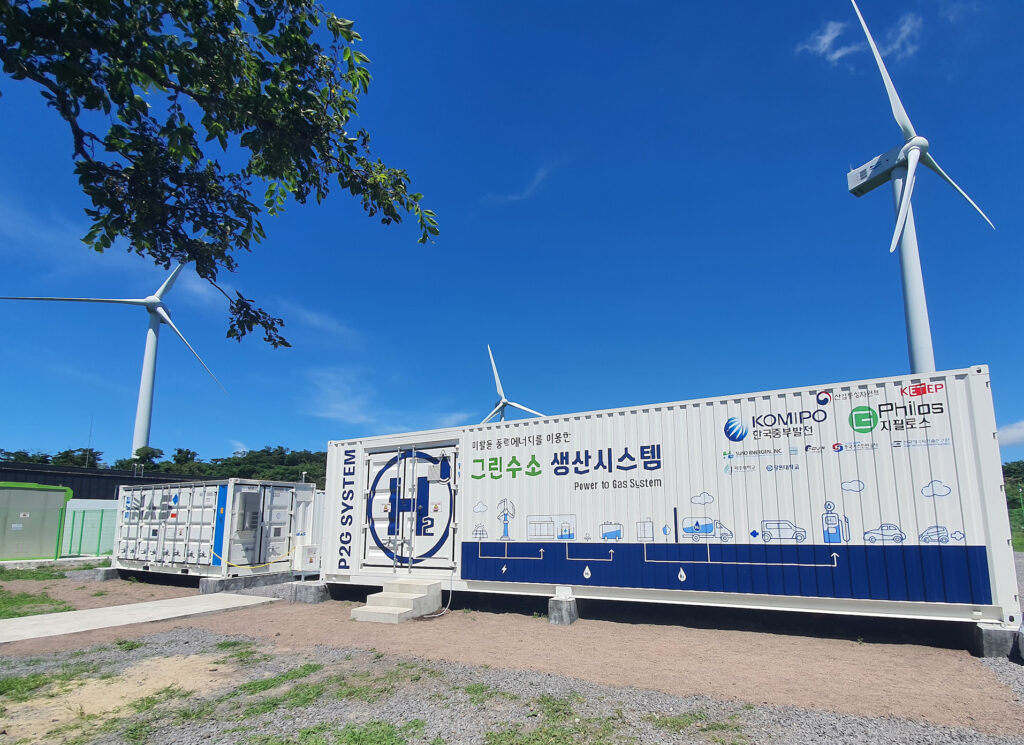
BASF will develop and market energy storage systems based on sodium-sulfur (NAS) batteries in South Korea in partnership with power-to-gas company G-Philos.
The European chemicals company’s subsidiary, BASF Stationary Energy Storage (BSES) announced last week the signing of a sales and marketing agreement for NAS batteries, for use in power-to-gas (P2G), power grid and microgrid applications.
The battery technology was first developed back in the mid-1980s and commercialised by Japanese company NGK Insulators. It has been used at more than 600MW and 4,000MWh across about 200 large-scale energy storage and microgrid projects worldwide.
The NAS battery operates at a temperature of about 300°C, can operate for about 15 years without experiencing cell degradation, even with 100% depth of discharge cycling every day. It is marketed as suitable for applications that require up to about 6-8 hours duration of storage.
Try Premium for just $1
- Full premium access for the first month at only $1
- Converts to an annual rate after 30 days unless cancelled
- Cancel anytime during the trial period
Premium Benefits
- Expert industry analysis and interviews
- Digital access to PV Tech Power journal
- Exclusive event discounts
Or get the full Premium subscription right away
Or continue reading this article for free
BASF and NGK entered a partnership in 2019, enabling the chemicals company to make its entry into the energy market with a “reliable, proven solution,” offering NGK access to its global sales channels.
In October 2021, as reported by Energy-Storage.news, BASF New Business, the arm which partnered with NGK, switched on a 950kW/5.8MWh NAS battery storage system at a BASF production facility in Antwerp, Belgium.
BSES and NGK now co-develop the NAS technology, with BSES as distributor.
The agreement with South Korea’s G-Philos comes after the success of a project to combine NAS batteries with a green hydrogen electrolyser at Sangmyung Wind Farm in South Korea. G-Philos’ power conversion system (PCS) was used in the project, which was inaugurated in 2020.
G-Philos will now purchase an initial 12MWh of NAS batteries for use in projects, while the partners will look to develop a standardised energy storage system solution pre-packaged with G-Philos’ PCS. The Korean company can provide PCS for NAS battery products ranging from 250kW to 1MW.
“With the increasing use of renewable energies, NAS batteries will be one of the most important solutions for storing electricity from renewable sources and, in particular, for CO2-free hydrogen production,” G-Philos CEO Gawoo Park said.
The partners will target the renewable energy market in South Korea as well as the wider Asia region.
In related news, today NGK announced the establishment of a joint venture (JV) to work on virtual power plant (VPP) and digital electricity services technologies, resulting from a smart energy city pilot in Japan.
NGK was is among participants in the project in Ena City, Gifu Prefecture, to create a local energy production and supply business combining rooftop solar PV with NAS batteries. The project was announced in April 2021 and got underway this year.
NGK will form its JV with one of the project’s other partners, electronics and imaging company Ricoh. At the Ena City project, Ricoh and NGK have worked together on a blockchain-based process tracker for supply, consumption and storage of energy.
The JV will look to combine NGK’s NAS batteries and ZNB5 zinc rechargeable batteries with Ricoh’s renewable energy distribution record platform, based on proprietary internet-of-things (IOT) and digital technologies. NGK will own 51% of the JV, and Ricoh 49%. Yet to be named, the JV will launch in February 2023.





